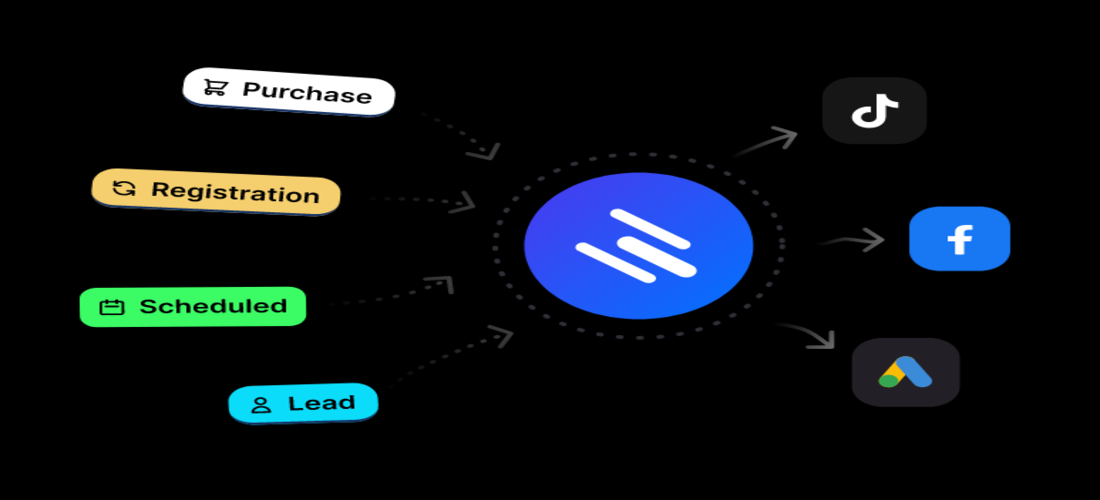As digital marketing becomes increasingly popular, the importance of link tracking, analysis, and optimization cannot be overstated. Whether you’re running a small blog or a large e-commerce website, it’s crucial to keep track of your links’ performance and make necessary changes to increase their effectiveness. In this article, we will explore the top-rated tools for tracking, analyzing, and optimizing links.
Introduction
• Definition of Link tracking, analysis, and optimization
• Importance of link tracking, analysis, and optimization
• Overview of the article
Why You Need to Track Your Links
• Understanding link tracking
• Benefits of link tracking
• How to track your links
Tools for Link Tracking
• Google Analytics
• Bitly
• ClickMagick
• Cometly
• AnyTrack
• Voluum
• Hyros
• Improvely
• Wicked Report
Analyzing Your Links
• What is link analysis?
• Benefits of link analysis
• Tools for link analysis
• How to analyze your links
Tools for Link Optimization
• What is link optimization?
• Benefits of link optimization
• Tools for link optimization
• How to optimize your links
Best Practices for Link Tracking, Analysis, and Optimization
• Importance of best practices
• Tips for effective link tracking, analysis, and optimization
• Common mistakes to avoid
Conclusion
• Summary of the article
• Final thoughts on link tracking, analysis, and optimization
Introduction
In today’s digital age, businesses and individuals rely heavily on links to drive traffic to their websites. However, simply creating and publishing links is not enough. It’s essential to track, analyze and optimize your links to maximize their effectiveness. Link tracking involves monitoring the performance of your links, while link analysis focuses on understanding and interpreting the data to improve their performance. Link optimization involves making necessary changes to your links to increase their effectiveness.
Why You Need to Track Your Links
Link tracking is crucial because it helps you understand how your links are performing. By tracking your links, you can determine which links are driving traffic to your website and which ones are not. This information is essential in helping you make informed decisions about your link building strategies.
Tools for Link Tracking
There are many tools available for link tracking, including Google Analytics, Bitly, LinkTrackr, ClickMeter, and TinyURL. Google Analytics is a popular tool for tracking website traffic, and it also provides valuable insights into your links’ performance. Bitly is another popular tool that allows you to shorten URLs and track clicks. LinkTrackr and ClickMeter are both paid tools that offer more advanced tracking features, such as split testing and conversion tracking. TinyURL is a simple tool that allows you to shorten URLs and track clicks.
Analyzing Your Links
Link analysis is the process of examining the data gathered from link tracking and interpreting it to improve your link building strategies. By analyzing your links, you can determine which links are performing well and which ones need improvement. Tools such as Google Analytics, Bitly, and LinkTrackr offer valuable insights into your links’ performance.
Tools for Link Optimization
Link optimization involves making necessary changes to your links to increase their effectiveness. There are many tools available for link optimization, including Ahrefs, SEMrush, Moz, and Majestic. These tools allow you to analyze your links’ performance, identify areas for improvement, and make necessary changes to improve their effectiveness.
Best Practices for Link Tracking, Analysis, and Optimization
To ensure effective link tracking, analysis, and optimization, it’s essential to follow best practices. Some tips for effective link tracking, analysis, and optimization include setting specific goals, using a variety of link tracking tools to get a comprehensive understanding of your links’ performance,
• regularly analyzing and interpreting the data gathered from link tracking to identify trends and areas for improvement,
• regularly optimizing your links by making necessary changes, such as updating the anchor text or fixing broken links,
• avoiding spammy or low-quality links that could harm your website’s reputation, and
• continually monitoring your links’ performance to ensure they are meeting your goals.
Conclusion
In conclusion, tracking, analyzing, and optimizing your links is essential to ensure they are driving traffic to your website and meeting your goals. There are many tools available to help you with this process, including Google Analytics, Bitly, By following best practices and regularly monitoring your links’ performance, you can ensure that your link building strategies are effective and drive the results you need.
FAQs ( Frequently Asked Question)
Why is link tracking important?
Link tracking is essential because it helps you understand how your links are performing and make necessary changes to improve their effectiveness.
What are some common link tracking tools?
Common link tracking tools include Google Analytics, Bitly, ClickMagick, Cometly, Improvely, AnyTrack etc
What is link analysis?
Link analysis is the process of examining the data gathered from link tracking and interpreting it to improve your link building strategies.
What are some best practices for effective link tracking, analysis, and optimization?
Some best practices include regularly analyzing and interpreting your links’ performance data, avoiding spammy or low-quality links, and continually monitoring your links’ performance to ensure they are meeting your goals.




